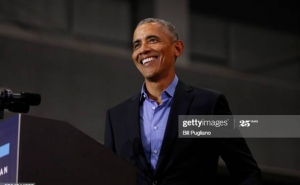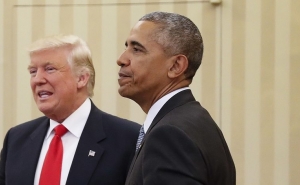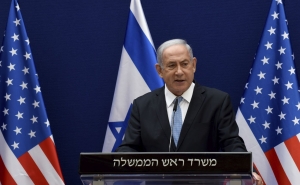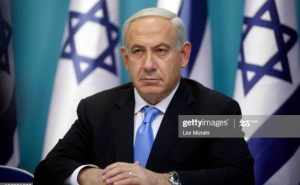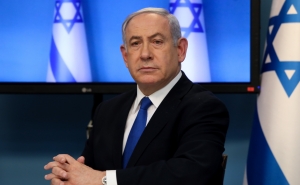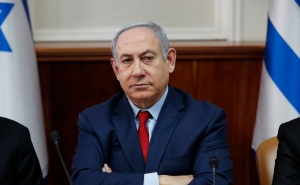 Iranian Nuclear Deal Has Both Challenges and Opportunities for Israel
Iranian Nuclear Deal Has Both Challenges and Opportunities for Israel

The past week in the US-Israeli relations was quite complicated and controversial. Everything started with the invitation of Netanyahu to Washington by House Speaker John Boehner without consulting the White House. In their turn the US State Secretary John Kerry and the US President Barack Obama declared that they will not meet the Israeli Prime Minister. Obama explained this kind of response by the fact that the White House policy does not allow to meet with foreign leaders soon before their election. The culmination was expected to be Netanyahu’s speech at the US Congress, where he was going to speak about the Iranian nuclear deal and its threats for Israel. However, the culmination was not that much painful, as expected.
To understand why all these started and in what direction moved, one should understand what the Iranian nuclear deal presupposes and what points there are that worry Israel. Iran and the six powers (the US, the UK, Germany, France, Russia and China) (P5+1) continue their talks to come to a final agreement. Last year the six powers set a deadline for the deal but it was extended twice. The next deadline for reaching the final deal is March 31. If sides come to an agreement the sanctions imposed on Iran will be lifted. P5+1 demand from Iran to reduce in 10 thousand centrifuges it operates and stop uranium-enriched production. Earlier, in 2013 an interim accord was signed by Iran and P5+1. According to this accord in exchange for a partial relief from sanctions Iran undertook to stop enriching uranium above 5% and to make it oxide, not to increase its stockpile of low-enrichment uranium, not to install any more centrifuges.
Benjamin Netanyahu’s response to the upcoming Iranian nuclear deal was quite unexpected and in some case ambiguous. Before arriving in Washington the Israeli Prime Minister declared that he was making the trip because it was his obligation to "do everything I can to prevent" a nuclear agreement with Iran. Netanyahu declared that the upcoming deal with Iran could "threaten the survival of Israel", as Iran is considered a "sponsor of state terrorism." During such an expected speech at the US Congress Netanyahudeclared that in case the sides come to an agreement over the Iranian nuclear deal that deal will not prevent Iran from developing nuclear weapons, instead, it will guarantee that Iran will get nuclear weapons. "We can insist that restrictions on Iran’s nuclear program not be lifted for as long as Iran continues its aggression in the region and in the world. Before lifting those restrictions, the world should demand that Iran do three things. First, stop its aggression against its neighbors in the Middle East. Second stop supporting terrorism around the world. Third, stop threatening to annihilate my country, Israel, the one and only Jewish state," – Netanyahu declared, Jerusalem Post quotes his words.

What is the reason for such rhetoric from the Israeli side? It seems that the ban to make nuclear weapons would be beneficial for the whole world in general in regard with the elimination of the threat coming from it and for the Middle East in particular. In addition to all this, in case of coming to an agreement, Iran would also help the US-led coalition against the Islamic State. What fears Netanyahu is change of the balance of power in the Middle East, if sanctions are lifted from Iran. And it is not only Israel that has such fears. The success of the Iranian nuclear deal is also of great concern for the Sunni rulers of the Gulf. For the Gulf countries the Iranian nuclear deal means rising power of Shia Islamic Republic.
The Israeli argument that after the nuclear deal Iran will not stop its uranium enrichment should not be excluded. Iran is now under sanctions and this hinders it to carry out different activities in the region and increase its role, hence the deal is in its interests. Some progress in the negotiations of P5+1 also speak about this. Recently the Foreign Minister of Iran Mohammad Javad Zarif declared: "We believe that we are very close." At the same time reaching a deal will not guarantee that Iran will stop making nuclear weapons.
Concerning the other argument by Netanyahu that Iranian nuclear deal will be a real threat for the security of Israel is not so strong as the previous one. Lifting sanction will no way mean that Iran will immediately start a war against Israel or organize terrorist attacks. Most likely, Israel over and over voices about a threat to its security to later justify its more aggressive policy in the region – particularly its activities in the Gaza Strip and the West Bank, in Syria and Lebanon.
To conclude it should be stated that the Iranian nuclear deal has both challenges and opportunities for Israel – increasing role of Iran in the region and Israel's "justified" activities respectively. As for the US-Israeli relations, despite the existing tension, there is no groud for it to deepen, as both countries still need each other...
Other materials on this subject
- Putin Has Phone Talk With Iran President The political settlement in Syria was initiated by Russia, Turkey and Iran, who also vowed to act as guarantors of the settlement of the Syrian conflict.
- Iran Says Awaits US Response to Nuclear Talks 'Solutions' The negotiations, aimed at bringing the US back into the deal and Iran to full compliance with it, had stalled for about two months.
- US Prepares New Options on Iran in Case Negotiations on Nuclear Deal Fail "Because of the way that the Iranians approached and participated in the last round of talks, the President asked the national security team to be prepared in the event that diplomacy fails and to take...
- Iran Ready for Resultative Talks on Nuclear Deal — Top Diplomat "Despite the fact that the West is not implementing its commitments, Iran, for the sake of demonstrating its good will and with an eye of the lifting of the unilateral and illegal sanctions, is again ready...
- Iran Dismisses Idea of Talks with EU and U.S. to Revive 2015 Nuclear Deal The United States said it was disappointed but remained ready to “re-engage in meaningful diplomacy” and would consult with the other major powers to seek a way forward.
-
 17:08
17:08The regular session of the Anti-corruption Policy Council takes place in Jermuk
-
 15:05
15:05The Prime Minister sends congratulatory messages to the supreme leader of Iran and the President of Iran
-
 11:11
11:11Armenia sends earthquake aid to Turkey
-
 10:43
10:43Commemoration of the Pontiff St. Sahak Partev
-
 09:16
09:16Some roads are closed and difficult to pass in Armenia
-
 19:55
19:55Phone conversation of the Foreign Minister of Armenia with the U.S. Assistant Secretary of State for European and Eurasian Affairs
-
 18:30
18:30Prime Minister Pashinyan and President Khachaturyan meet
-
 18:20
18:20Ararat Mirzoyan with Co-Chairman of the OSCE Minsk Group of France Brice Roquefeuil
-
 17:01
17:01Humans could land on Mars within 10 years, Musk predicts
-
 16:45
16:45France, US urge 'immediate' end to Nagorno Karabakh blockade
-
 16:01
16:01Blockaded Nagorno Karabakh launches fundraiser to support quake-hit Syria
-
 15:59
15:59Earthquake death toll in Turkey rises to 18,342
-
 15:43
15:43Ararat Mirzoyan Held a Telephone Conversation with Sergey Lavrov
-
 15:06
15:06French president rules out fighter jet supplies to Ukraine in near future
-
 14:47
14:475 Day Weather Forecast in Armenia
-
 14:44
14:44President Vahagn Khachaturyan wrote a note in the book of condolences opened in the Embassy of Syria in Armenia
-
 14:20
14:20Azerbaijan’s provocations impede establishment of peace and stability – Armenian FM tells Russian Co-Chair of OSCE MG
-
 12:57
12:57France representation to OSCE: Paris calls on Azerbaijan to restore freedom of movement through Lachin corridor
-
 11:40
11:40Command of Kosovo forces highly appreciated preparation of Armenian peacekeepers
-
 10:16
10:16The United States withdrew from sanctions against Syria for six months the provision of assistance after the earthquake
day
week
month
Humidity: %
Wind: km/h


